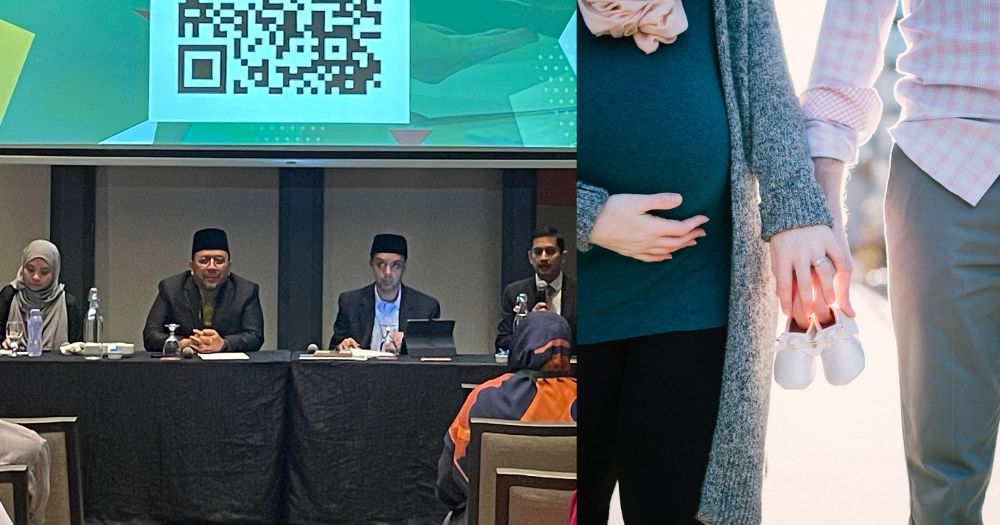Muslim couples in Singapore who are planning to have children can turn to carrier screenings to detect diseases that may potentially be passed on genetically to their children.
Speaking during a plenary discussion at the Conference on Fatwa in Contemporary Societies 2024, Husna Azzakiyah Muhammad Haniff from Fatwa Lab said research findings conclude that such screenings are permissible in Islam and in line with Shariah.
The Fatwa Lab is a platform for researchers and scholars to discuss, analyse and collaborate on contemporary issues under the remit of fatwa work.
The discussion focused on exploring the effective implementation of a value-based approach to customised carrier screening. It aims to offer religious guidance for Muslim couples to make decisions in line with Shariah principles.
Other panellists include Muis Deputy Mufti Mohammad Hannan Hassan, associate member of the Fatwa Committee Mohd Rizhan Leman and Saumya Shekhar Jamuar, senior consultant at Genetics Service in KK Women's and Children's Hospital.
The two-day conference organised by Muis covered topics such as how contextualised fatwas can cultivate intellectual and ethical empowerment in Muslims, as well as how fatwa institutions can address the evolving needs of the Muslim community.
Embracing carrier screening for genetic diseases for Muslims
The stance on carrier screening for Muslims in Singapore was previously unclear.
Husna spoke about how her research team, in collaboration with Saumya, studied how carrier screenings can be implemented for Muslim couples considering current medical practices along with the fundamental tenets of Islam.
Currently, carrier screenings in Singapore are carried out using blood tests.
"That is done every day, I think arguably every second in the hospital," she said, noting the low risks associated with blood tests.
The research also analysed the "maslahah" consideration in Islam. "Maslahah" is an Islamic concept referring to the necessity or benefit of Islamic rulings or law.
"Just by that, it's already permissible," said Husna.
However, the team also acknowledged that there are bigger implications to the community when it comes to the topic of genetics than just announcing a specific ruling.
Empowering Muslim couples to make informed decisions in family planning
Couples are encouraged to consider multiple approaches in family planning and apply Islamic teachings, Husna said.
Carrier screening should be guided by "maslahah" or the necessity of going for such screenings.
This can be determined by assessing their financial situation and family history of diseases that may be passed on genetically.
Only around 0.4 per cent of those who undergo the screening are at high risk of having genetic diseases, said Saumya.
"But even at 0.4 per cent, it's only a 25 per cent chance that the baby will be affected," he added.
Couples should also incorporate the Islamic concept of "tawakkul" while considering the balance of health and suffering, Husna added.
Screenings not mandatory, want "organic change" within the community
No fatwa has been issued, according to Mohammad Hannan Hassan.
He added that the Fatwa Lab researchers are still studying its need, and will advise the Fatwa Committee accordingly.
There are currently no plans set in stone to make carrier screenings mandatory.
"It's about informing couples about the risk and it should be a choice," said Saumya.
"I would prefer an organic change," said Mohammad Hannan Hassan, adding that the Muslim community should be able to get used to these tests and gradually see it as a normal process.
Top photos by Mothership/Unsplash
If you like what you read, follow us on Facebook, Instagram, Twitter and Telegram to get the latest updates.



